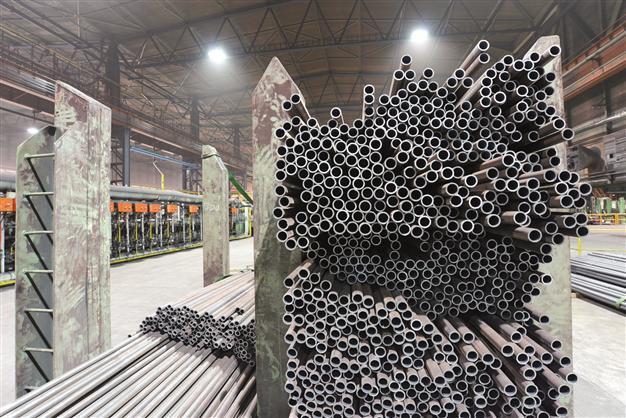Turkish steel maker worried over domino effect from US duties
Hacer Boyacıoğlu ANKARA
 Anti-dumping duties introduced by the United States have prompted concerns among Turkish steel sector representatives, who fear losing around $250 million-worth in exports, as well as knock-on effects in other markets.
Anti-dumping duties introduced by the United States have prompted concerns among Turkish steel sector representatives, who fear losing around $250 million-worth in exports, as well as knock-on effects in other markets.The U.S. announced on Aug. 22 that it had approved anti-dumping duties against Turkey and other producers of steel pipes for the energy sector, marking a victory for domestic producers who hope to benefit from a recent boom in the shale oil and gas industry.
Although subject to appeal, the decision puts the U.S. Department of Commerce closer to imposing tariffs as high as 118 percent on “oil country tubular goods” (OCTG), which are pipe and tube products used in the petroleum industry.
Veysel Yayan, General Secretary of the Turkish Iron and Steel Producers’ Association, said the decision “lacks any strong basis.”
“There is no company in the sector that can make a 20 percent profit, but a 35 percent duty will be implemented. They [the U.S.] make these kinds of decisions to protect producers in their own country,” Yayan said.
Yayan said Turkey’s steel exports to the U.S. stands at 300,000 tons, equivalent to $250-$260 million-worth in sales, but warned that these numbers could be thwarted by the new decision.
He also highlighted a risk in other countries following the U.S. in limiting their imports from Turkey.
“Canada may launch an investigation within this framework. There is an ongoing legal process in Australia. Morocco had opened an inquiry into Turkish steel, but it has closed the file. However they re-reopened the investigation and decided to implement dumping duties. Countries are influenced by each other and make these kinds of decisions,” he added.
In a statement released yesterday, Chairman of the Board of the Steel Exporters’ Association, Namık Ekinci, also dubbed the U.S. decision as “baseless.”
“This is the case of world’s biggest free market [the U.S.] heightening its protective walls with groundless excuses,” he said.
Ekinci claimed the decision ruled by the U.S. International Trade Commission (USITC) was based on the assumption that there is no free market in Turkey and slammed it for not reflecting the truth.
“The U.S. steel producers have politicized this decision by pressuring over 150 Congress members and decision-making bodies and have prevented the decision from being made fairly,” Ekinci said.
















